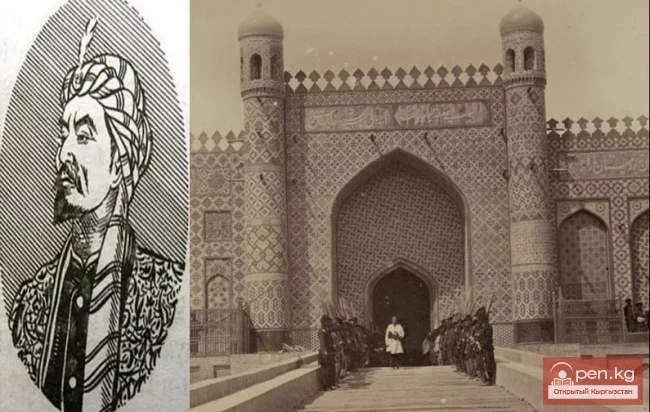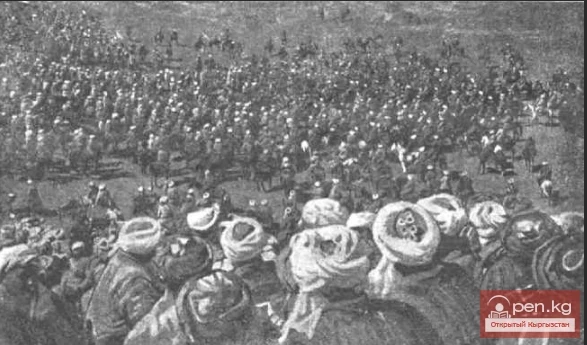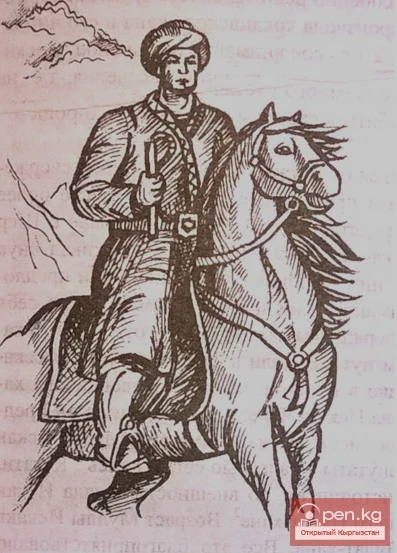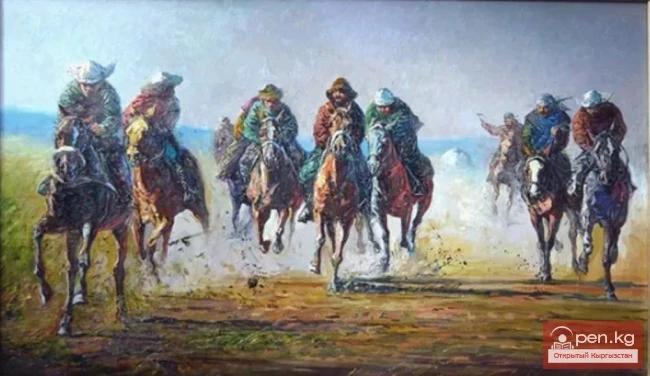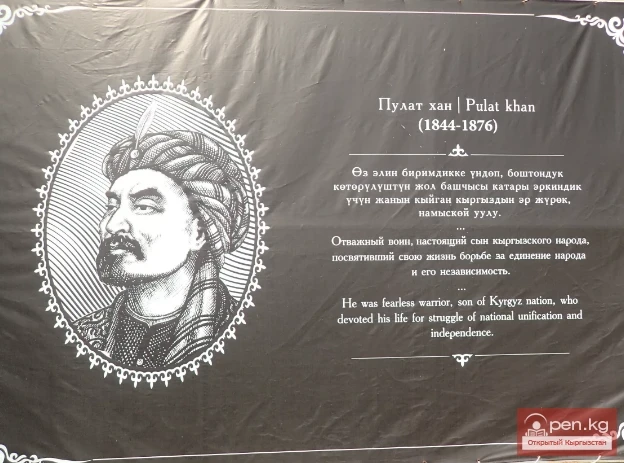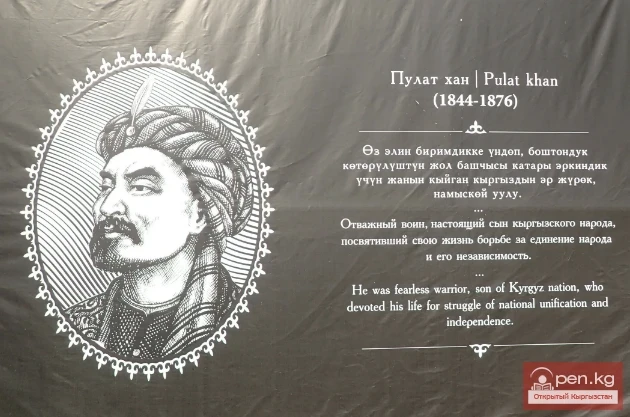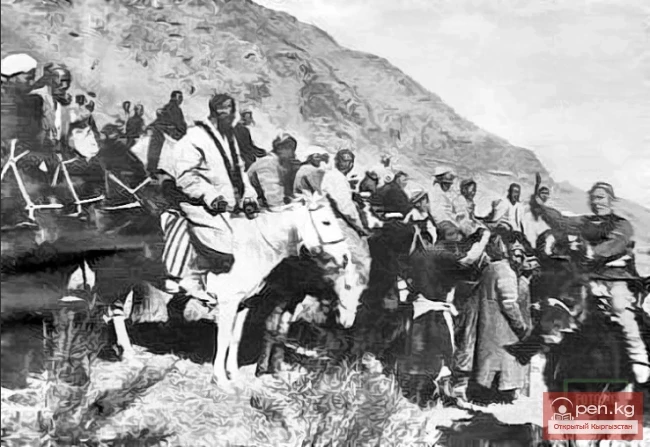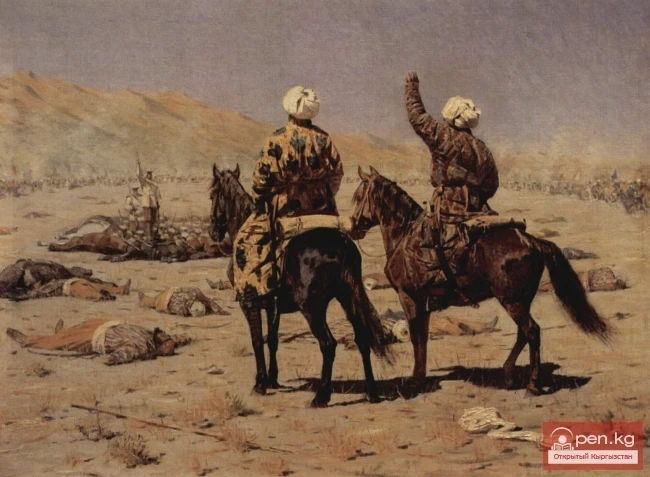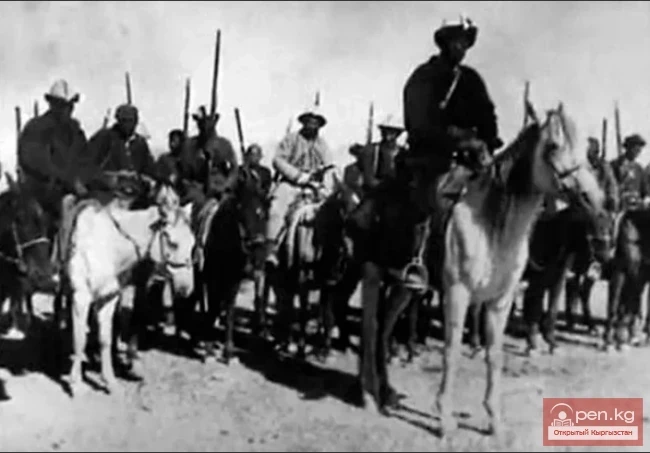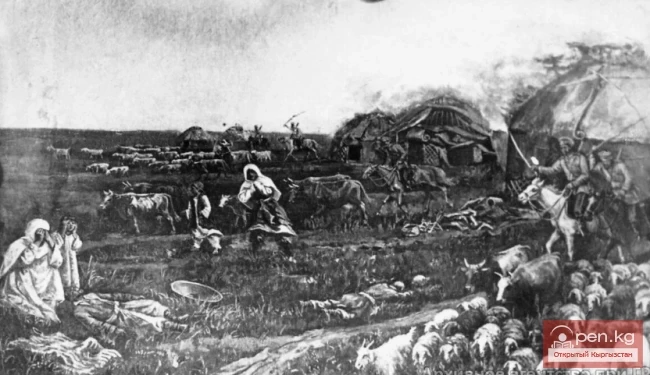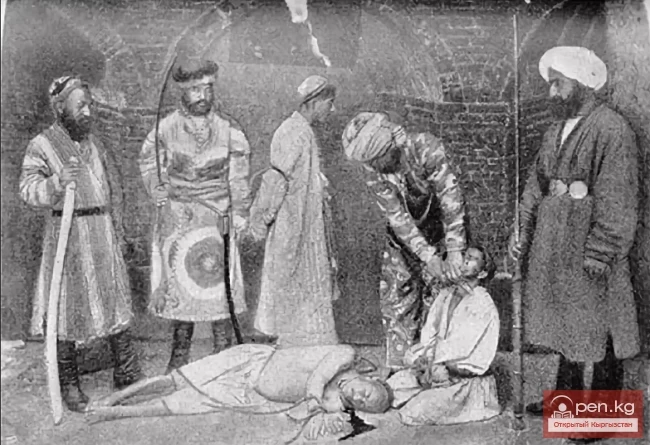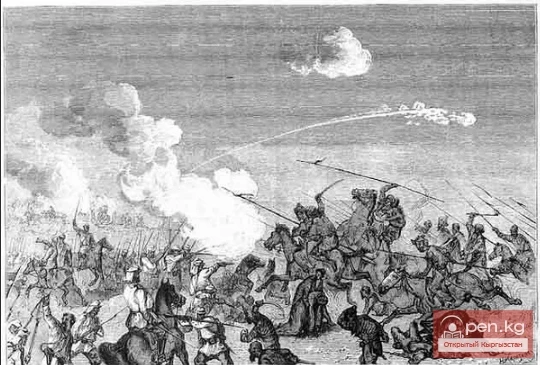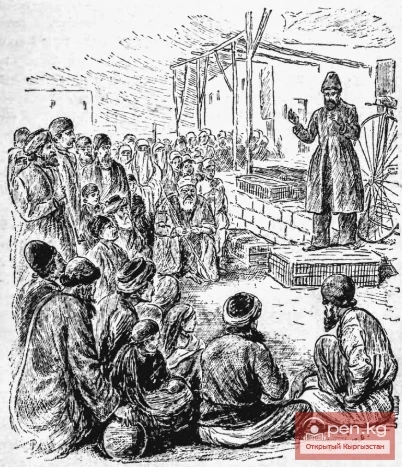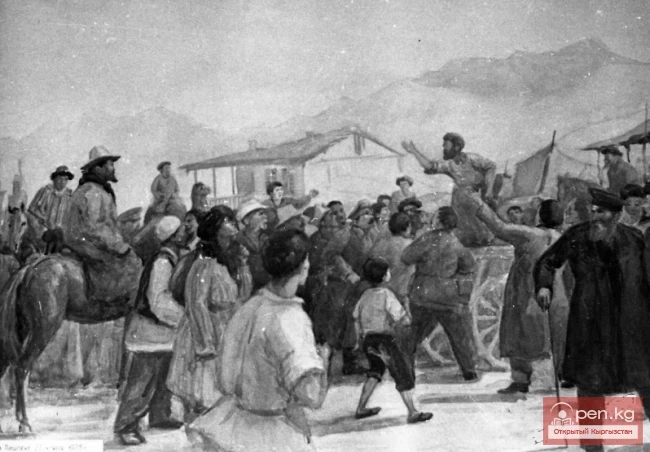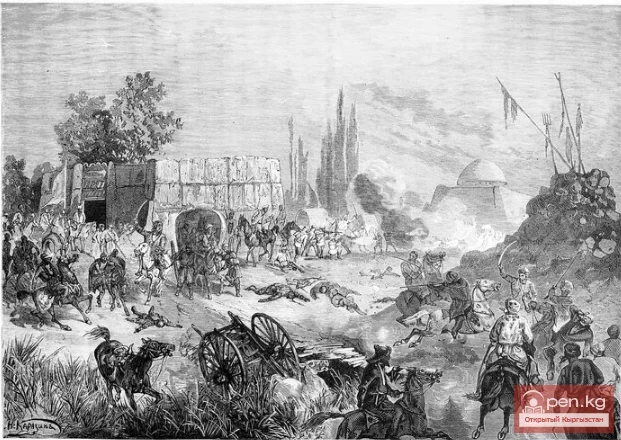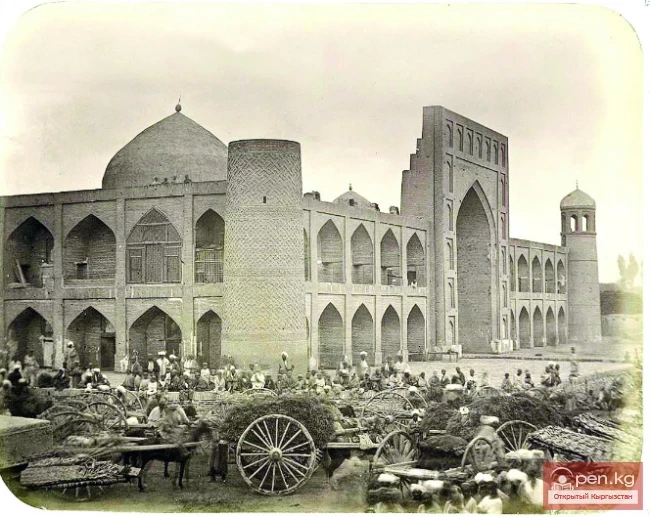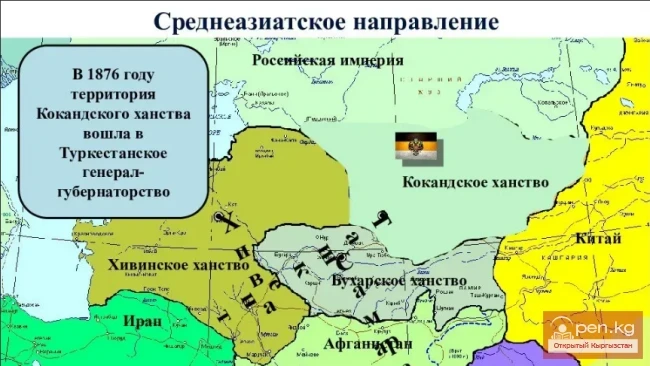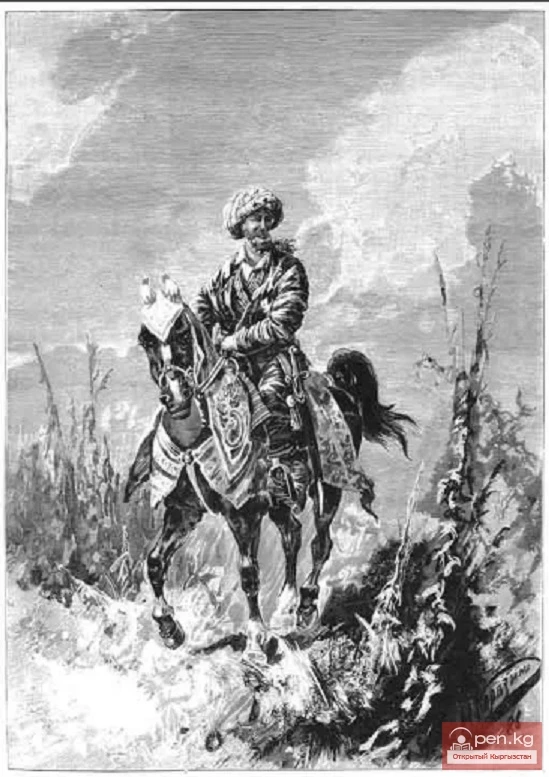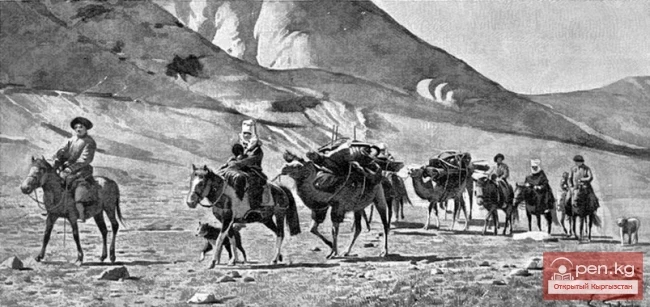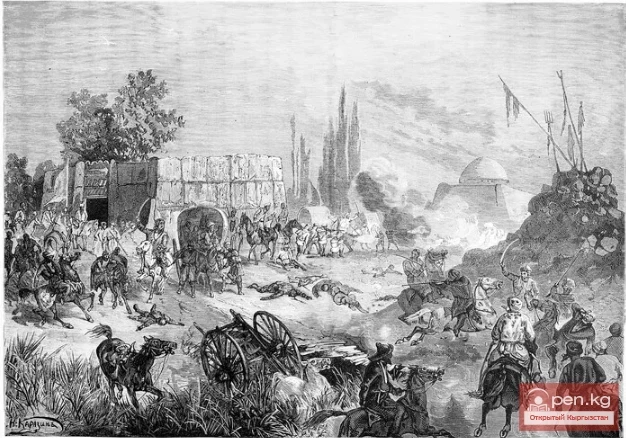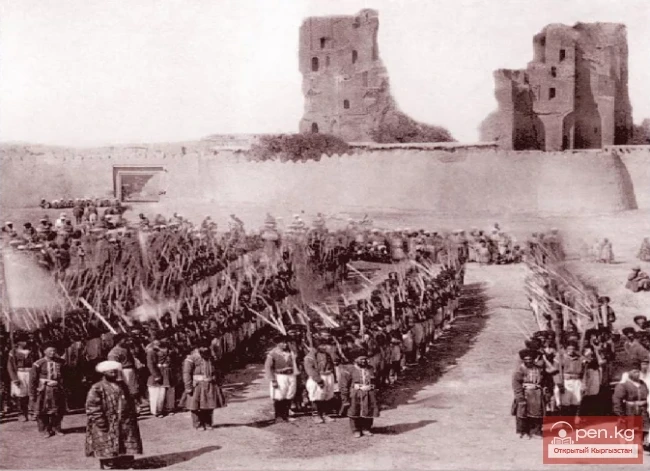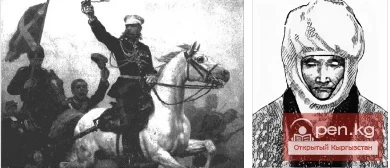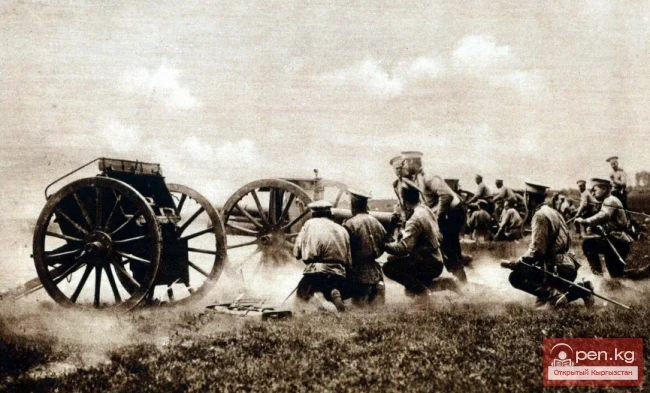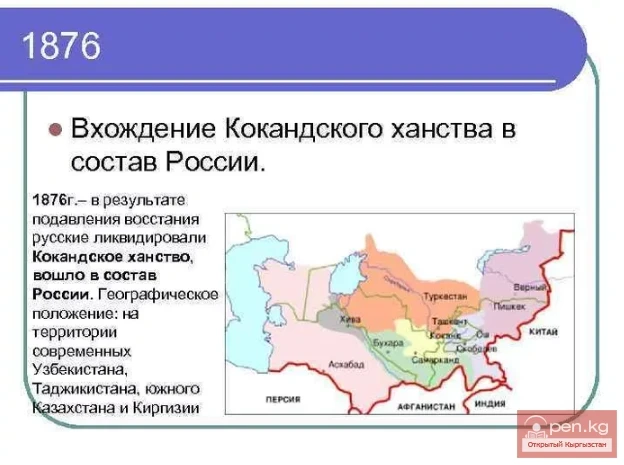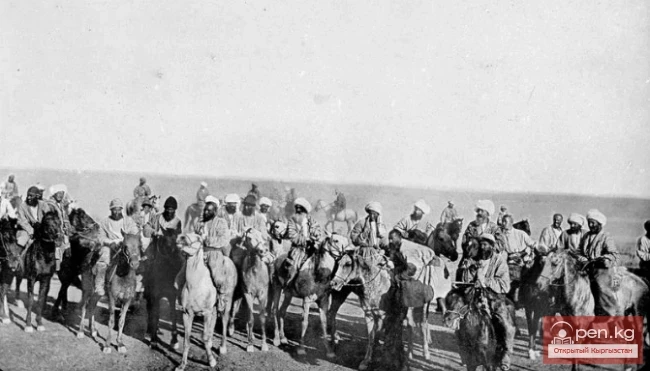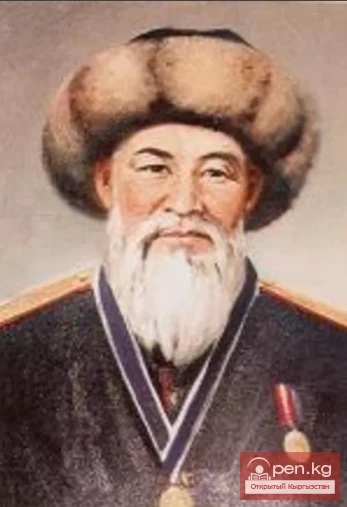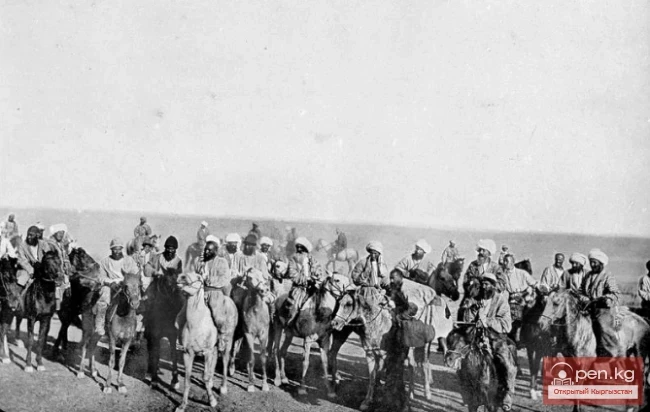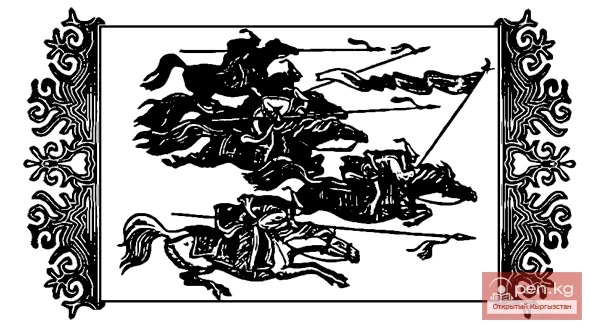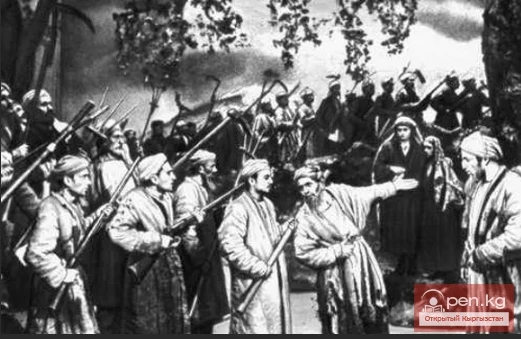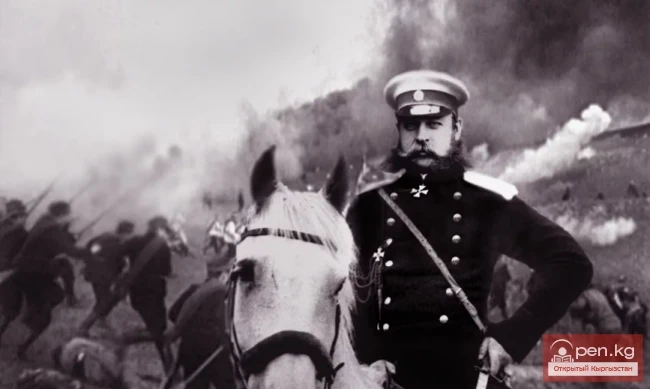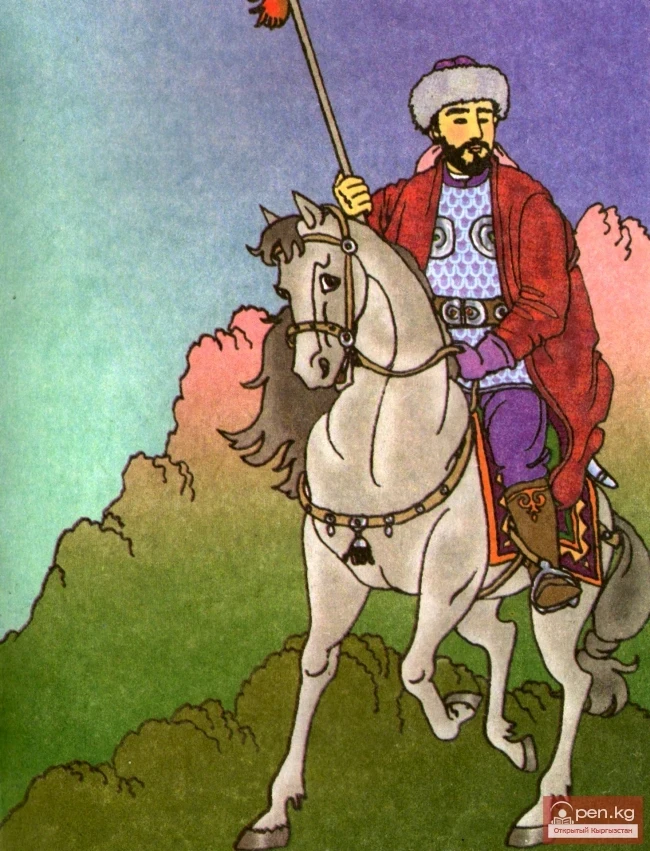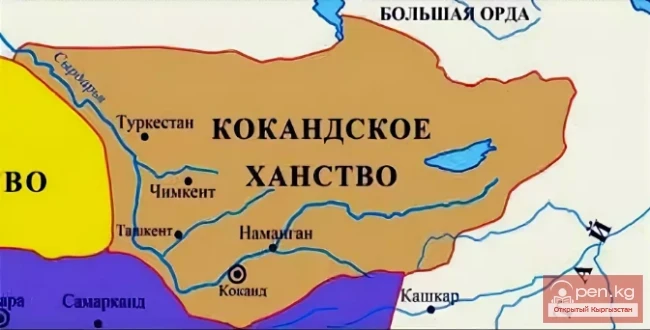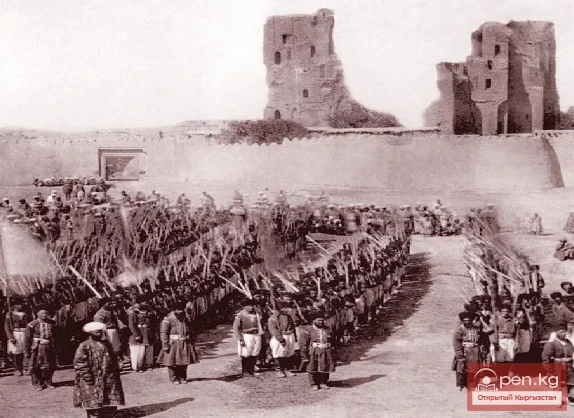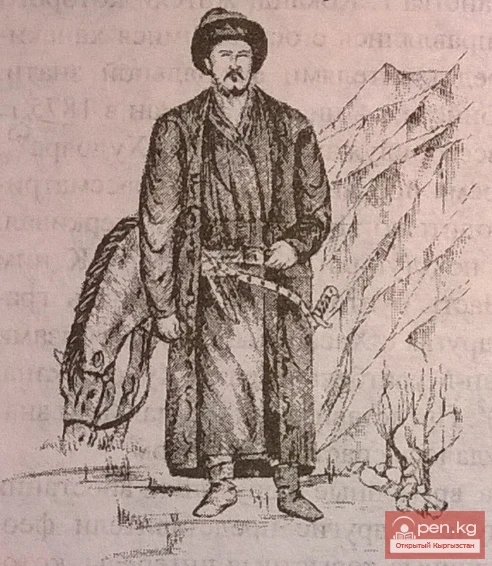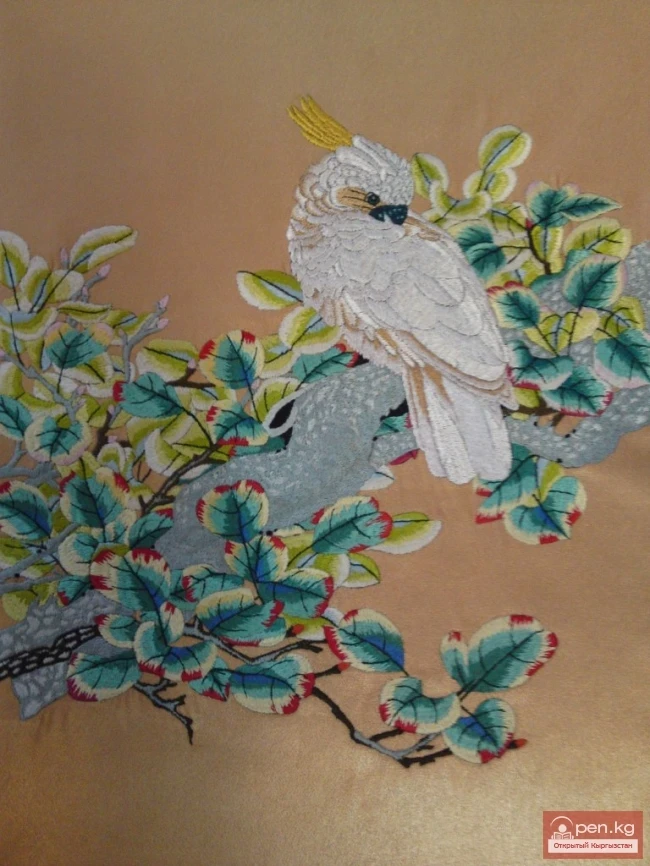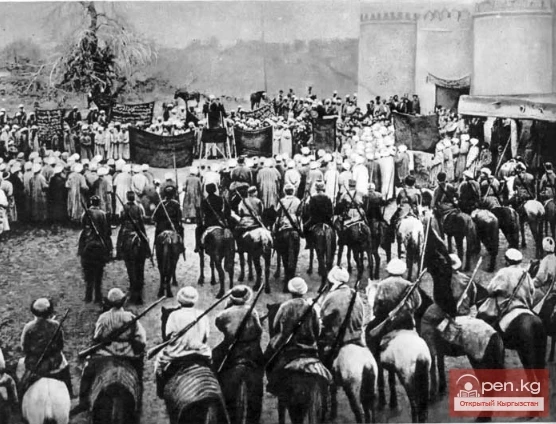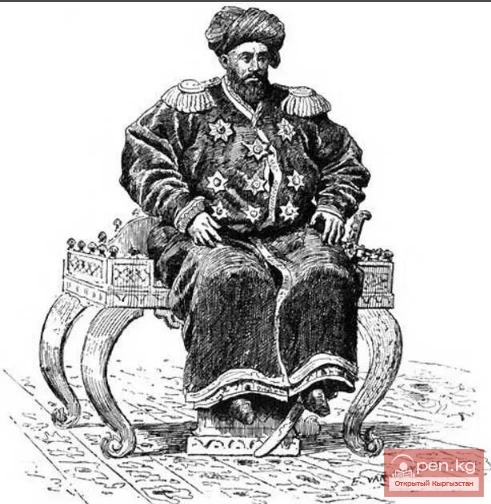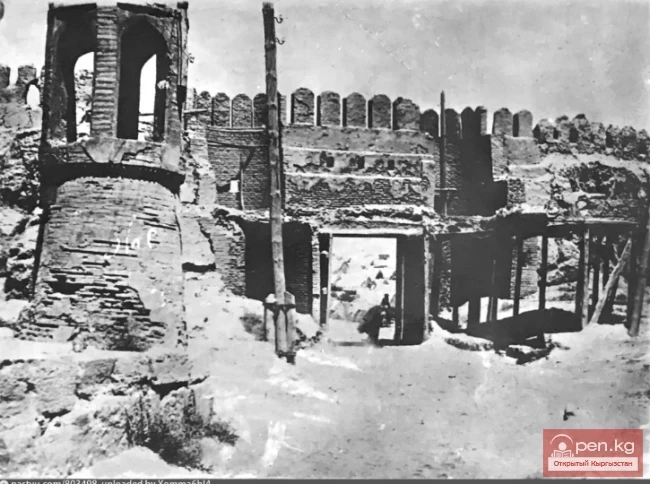PULAT-KHAN
As soon as the khan's troops suppressed the uprising in one place, it flared up in another. Now the nomads of Chatkal had risen. They were led by a certain Pulat-Khan. He was a simple Kyrgyz named Ishak, who claimed to be the grandson of the Kokand khan, Alim. Why did he do this? In those times, the common people believed (as they had been led to believe for centuries) that only a person of noble lineage should lead. That is why Ishak took the name Pulat-Khan.
In a short time, he managed to gather a militia of several thousand people. Swiftly occupying several villages, he moved his troops towards the city of Namangan. Pulat-Khan called upon the people to fight against the bloodsucker Khudoyar. Under his banner, the downtrodden flocked from everywhere.
The Namangan bek and other beks gathered a whole army and set out to meet him. They boasted of destroying and executing all the rebels.
However, upon ascending the mountains, the beks became more cautious. They learned that there were many rebels.
— We need to scout the strength and intentions of the rebels, — they said at the military council. You cannot jump off a cliff if you do not know the depth of the abyss.
The government troops stood for two days. On the third night, a terrible noise awakened the sleeping camp. The enemy attacked!
Confusion erupted, turning into panic. Horsemen and foot soldiers of the khan were rushing around the camp. Some were catching horses, while others were simply running for their lives. Commanders, straining their voices, called their subordinates. Everywhere there were sounds of neighing horses, shouts, and gunfire. The beks, rushing out of their yurts surrounded by bodyguards, tried in vain to make sense of what was happening.
The noise ended as suddenly as it had begun. The attackers disappeared.
The morning sun illuminated a disheartening scene. Several dozen dead, even more wounded. Some horses were stolen, yurts were overturned, and tents were burned and torn apart... The beks suspected that most of the damage had been inflicted by their own valiant khan's warriors. In the pitch darkness, it was easy to lose one's head.
In contrast, the rebel camp was filled with jubilation. The first battle had been successful! The raid was led by Pulat-Khan (that is, Ishak). Now he rode on an argamak to the cheers of his horsemen, and his face seemed to glow. In the night battle, he received a glancing blow to the head from a spear — the skin at the impact site was torn. But the bandage on his forehead soaked up blood. And the people looked at their leader with admiration: a true jigit!
A batyr who knows no fear!
The next day, after restoring order, the angry beks moved their troops towards the rebel camp. But they did not manage to catch the victors off guard. Pulat had already led his army out to meet them and occupied a favorable position along a deep ravine with steep slopes. The khan's troops approached and came up against this ravine. A verbal exchange began on both sides. Both sides spared no curses, insults, and all sorts of ill wishes for each other.
However, neither side dared to cross the ravine in front of the enemy.
So they stood for several days. On both sides of the ravine, they cooked stew in cauldrons and occasionally fired their guns.
At the military council, Pulat-Khan said that this could not continue. Help could arrive for the beks at any moment, and then they would not be able to overcome them.
— Our people are inspired by the first victory. We must repeat this victory! Otherwise, we will eat our supplies in vain.
And we cannot constantly replenish them from the nearby villages. We must not take example from the khan's sarbaz, who rob the inhabitants. If there is no victory, people will eventually disperse.
The commanders of the detachments nodded in agreement, but they also objected.
— That is all true... But driving people across the ravine is tantamount to death. Our jigits will rebel; they may disobey.
We will do it differently: we will call for volunteers. If they fall, their relatives will have no one to blame.
— Good! — said Pulat-Khan. — I will also go as a volunteer.
The next day, almost half of the rebels began to descend into the ravine. They were led by Pulat-Khan himself. The remaining ones raised a furious howl, firing from their "multiks".
The khan's sarbaz did not expect anything like this. These warriors, clad in uniforms, served in peaceful Namangan, regularly received salaries, and supported families. And suddenly, war. The end of a prosperous, serene life! They had to fight and die. And these rebels had completely lost their minds. No mercy could be expected from them. The khan's troops turned to flee. The historian writes: "At the sight of such courage (of the attackers), the beks were among the first to take flight. Their troops followed. The Kyrgyz rushed to pursue, caught up with the stragglers, and slaughtered them." This turn of events forced Khudoyar himself to intervene. By his order, troops were gathered from all over the Kokand khanate. All sarbaz (soldiers) were armed with guns. They had copper cannons at their disposal.
And thus, the decisive battle erupted. The disorganized crowds of rebels were armed only with spears, axes, and their grandfathers' sabers. With desperate bravery, they charged at the orderly ranks of the sarbaz. They were met with gunfire. Bullets mowed down the first ranks of the attackers. Then the cannons roared. The attack faltered. The rebels began to retreat. And when a numerous cavalry charged at them, they fled in panic.
The defeat was complete. Pulat-Khan himself, accompanied by a few men, barely escaped the pursuit. The small detachment retreated further into the mountains.
The khan's punitive forces rampaged everywhere. The Kyrgyz nomads were subjected to brutal plunder. In Chatkal and Laylak, Alabuk and Kara-Kuldja, the kystaks and ayils were completely looted and burned. The khan ordered that no one be spared.
With cruelty, he sought to intimidate the people and suppress the rebellion at its very beginning.
But it turned out the opposite. "You sow the wind — you reap the storm." The Kyrgyz and Kipchaks rose everywhere. The number of rebels was countless. They were joined by the Uzbek and Tajik population. The khan miscalculated.
The deadly struggle was just beginning...
Myths and Legends
